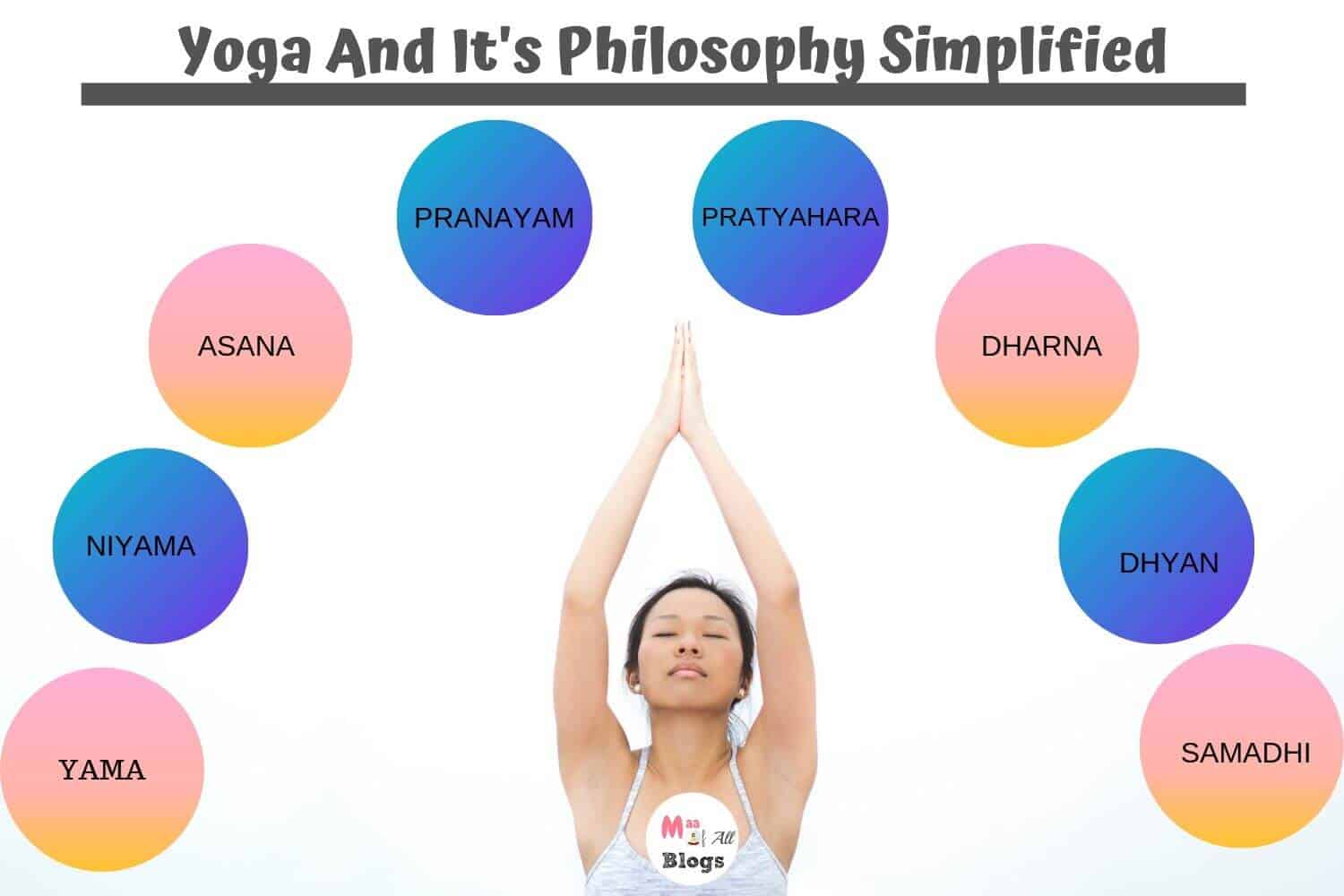
Yoga Philosophy Simplified
Most of us know Yoga as the traditional Indian form of exercise but yoga is so much more than just its physical form.
There are so many parts to it.
Patanjali the father of yoga mentioned ‘Yoga Chitta Vritti Nirodha’ in his writings which are known as Patanjali Yoga Sutra.
It means that true yoga is achieved by removing the fluctuations of the mind. To achieve that you need to follow 8 steps to being a yogi. The physical form or asanas come only third in the list.
The eight steps in order of sequence are;
1. Yama– non-violence, honesty, no stealing or hoarding, no favours, walking on the path of God.
2. Niyama -cleanliness of body & mind, contentment, austerity, self-introspection and unconditional love for God.
3. Asanas– physical practice
4. Pranayama- breathing exercises
5. Pratyahara– withdrawing from all 5 senses
6. Dharna- concentration
7. Dhyan – meditation
8. Samadhi-state of meditative consciousness

How many of us even bother practicing the others? I have seen people only practicing asanas trying to achieve that perfect asana, maybe a little bit of breathing exercises and meditation.
Most of us never even think beyond this. If you do practice yoga with devotion or are planning to take it up as a lifestyle then do understand, read up and adopt the other steps as well. There are no skipping steps when you really want to achieve something and one step leads to the other. When I went to Mysore to learn yoga, my focus was on improving my practice and also understanding philosophy. The experience there opened my eyes to yoga as a practice of way beyond that. I thank my teachers to have made me realise this and my ancestors to give us this wonderful science and its knowledge.
How can you incorprate this in your city life? Even if it means 15 minutes of asana practice, do that and give 10 minutes to meditation and pranayam. You can download the 10 minutes, 15 minutes practice and meditation online or use an app for it. The idea is to do this regularly to see the benefits. The idea of today’s post was to just tell you about the eight pillars of yoga. Will share more about each of them in another post.
#yoga #philosphy











Leave a Reply